The Salem Witch Trials are a dark spot in our history books. It’s a misunderstood moment of terror and violence that has almost been elevated to mythical status at this point. But the thing is, this isn’t a myth. This isn’t a fairytale or some scary movie that you can assure yourself didn’t actually happen. It happened, in this oceanside town in Massachusetts. From 1692 until 1693, young girls led by one Abigail Williams claimed they were possessed by the devil due to witchcraft. The girls pointed to many women in town as the culprits behind those “spells.” All together, 150 people were accused. Twenty of them were hung, crushed to death with rocks, and torn apart. People’s lives were destroyed, their children died in prisons, and neighbors fed each other to the wolves.
This atrocity only ended when someone with enough power (governor William Phips) stepped in, because his own wife was accused. Only then did he conveniently realize its “unlawful(ness).” Historians have theorized many reasons for the girls’ accusations and the hysteria that ensued, but the most common explanation is that their brains were swollen due to a fungus, and that it caused vivid hallucinations.
Imagine living through that. Seeing something as history often allows people to distance themselves from the people who lived through it, so instead, understand that this is your past too. It’s all of our pasts as Americans and human beings in general. Don’t take yourself out of this. This is about you too.
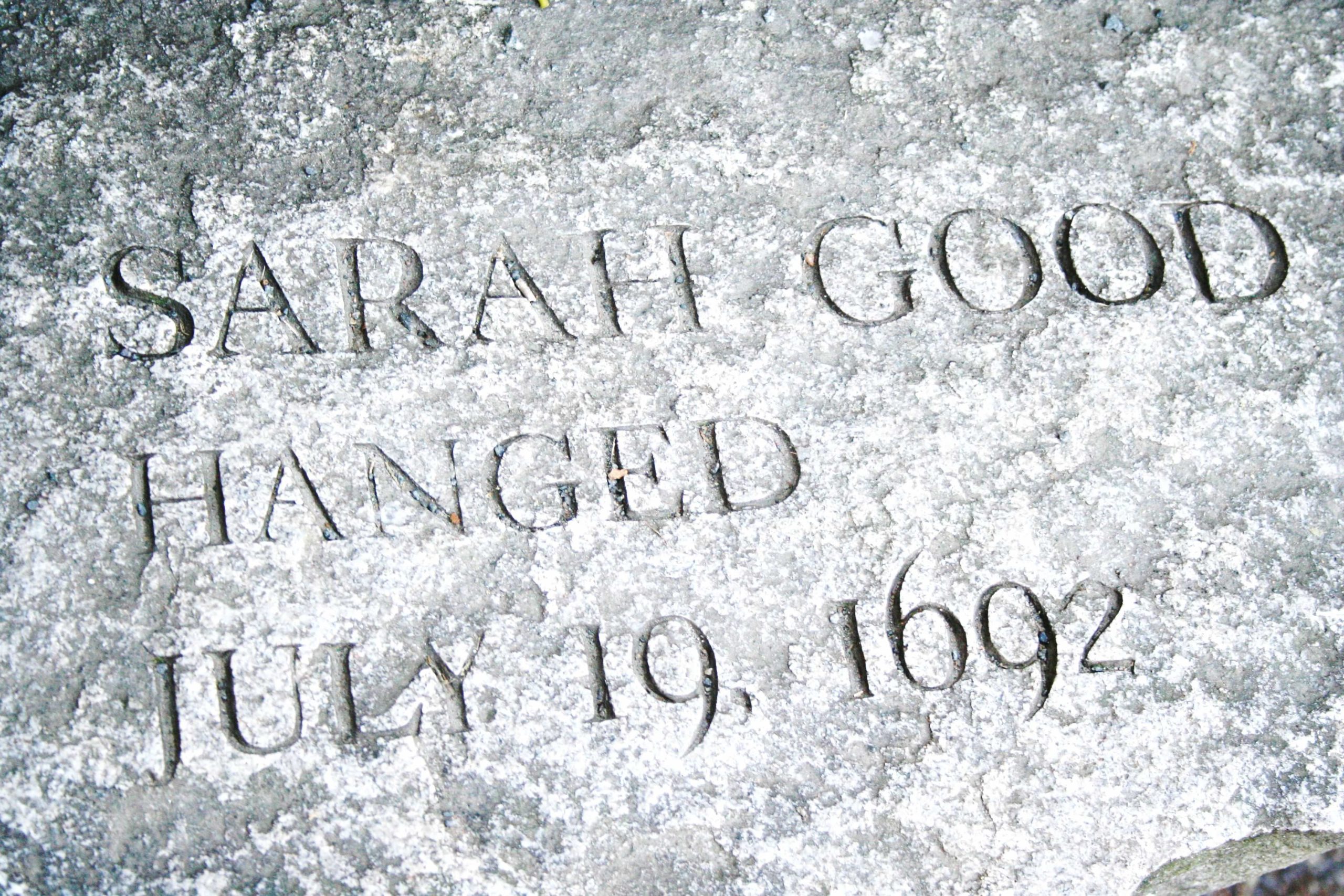
For me, it literally is about me too. I’m a direct descendant of Elizabeth Buxton, an old sage in Salem who was well respected and apparently very outspoken. She was called “grand, wise, and skillful” in her court documents, and until recently I had no idea that she helped organize a petition to free her good friend—Rebecca Nurse. Obviously the petition failed, since Rebecca was killed, but it doesn’t take away from the bravery of it all. She risked her life by speaking up, and the lives of her children. Her wealth, popularity, and status as a widow put her under high risk as a woman in that paranoid town, and she was literally emboldening the target on her back by speaking out. Reading her court statements is humbling and inspiring. I’m proud of her, and I’m glad she made it out alive.
One of her sons, John, unfortunately wasn’t as heroic, and actually accused a few people of witchcraft (though he did post bail for someone else who was accused). It’s disappointing, and feels too close for comfort to know I’m related to someone so spineless. These trials feel real and recent for me, because of my personal connection—unfortunately to both sides of the aisle. But you don’t have to be a family member of those involved to care. Again, this isn’t just about them. It’s about all of us, and we need to take it seriously and respect the fact that these people were living and breathing real people. We trivialize their suffering when we trivialize this part of our history.
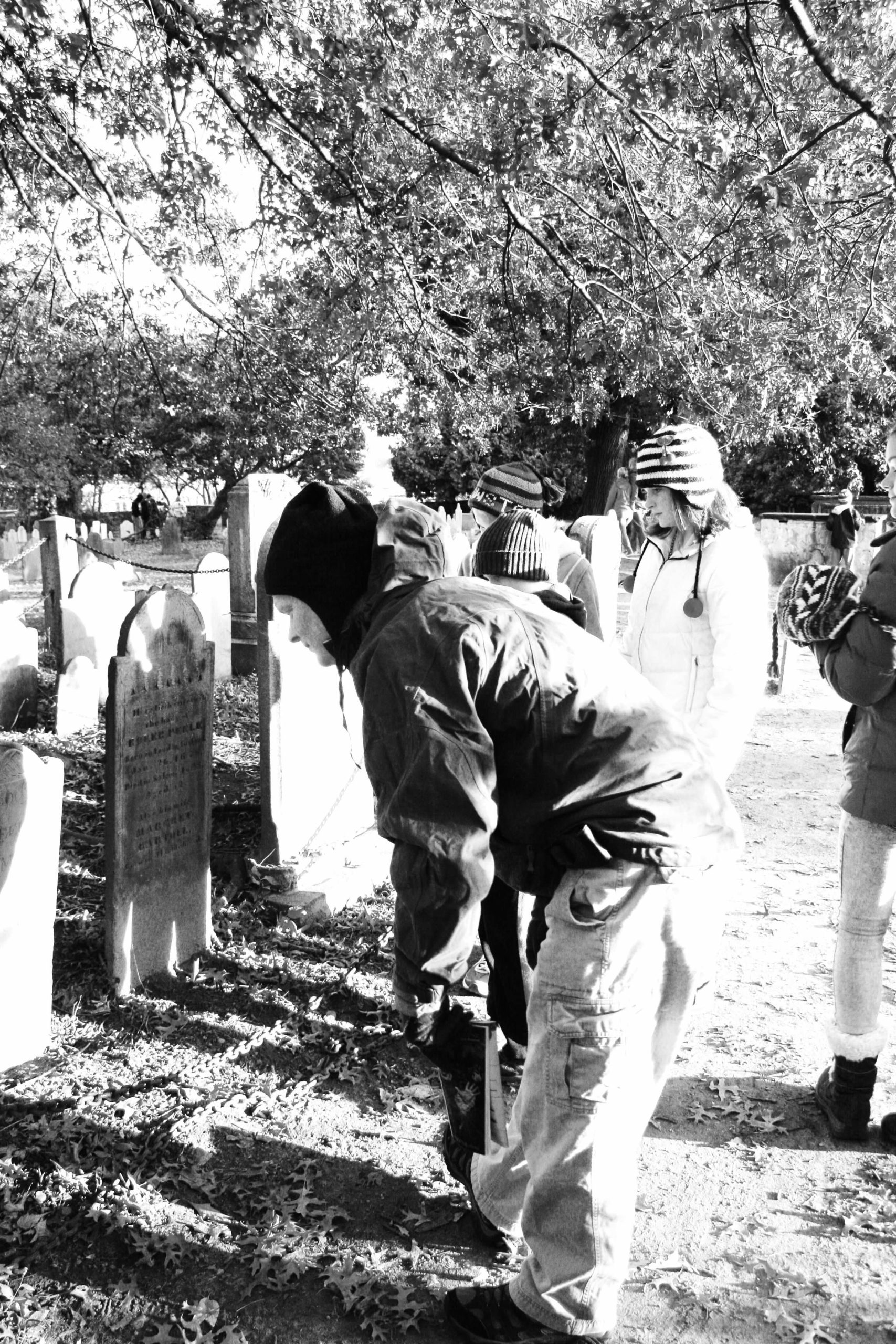
As a kid, my family and I traveled to Salem as much as possible to pay our respects to our ancestors and the victims and learn more about the events that took place.
As Halloween approaches, these trials are dusted off after a year of hibernation (even though this isn’t the time of year when it started or even ended). The victims are mocked by people romanticizing the entire affair. If you’ve ever been to Salem, you know what I’m talking about. There’s nothing wrong with going and learning about what happened. There’s nothing wrong with paying your respects at the cemetery or burial point. There’s nothing wrong with taking night tours, buying books, walking through town, going out to eat, or even feeling festive. I personally think everyone should go at least once and see this place. It reminds you that this was a real event, and that these people actually existed in this seaside town. By all means have a good time, and maybe learn about what actual witchcraft and paganism are if you want to get your fill of witchiness this holiday. Just don’t put that on the dead who didn’t practice it, and don’t visit Salem and spend the entire time in one of the many commercial haunted houses that McDonaldize this tragic event. Go to the name markers that honor the victims. Visit the historical sites. That should take priority. Have a good time, but don’t romanticize the horrors that happened there.
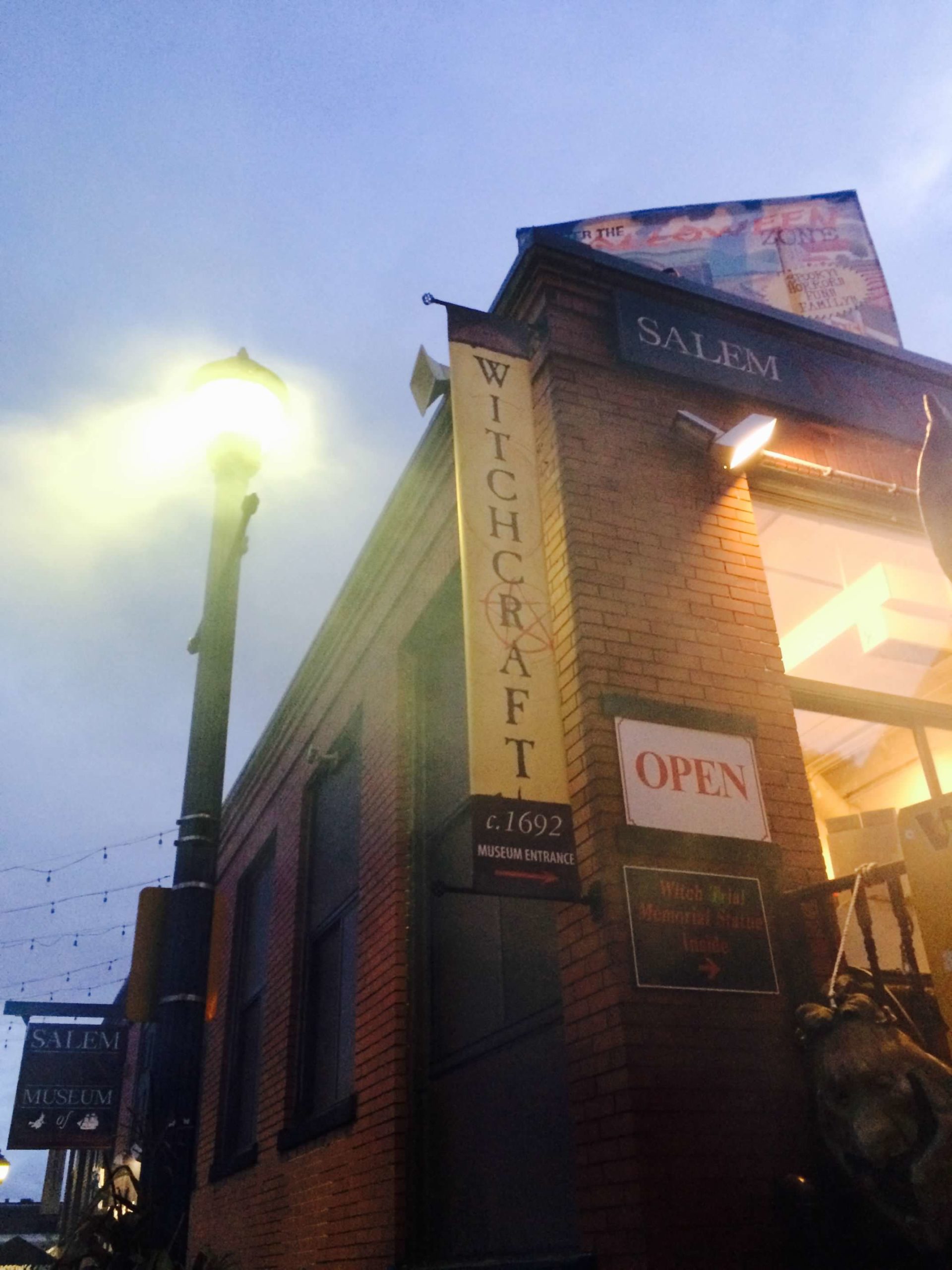
Salem looks different than it used to.
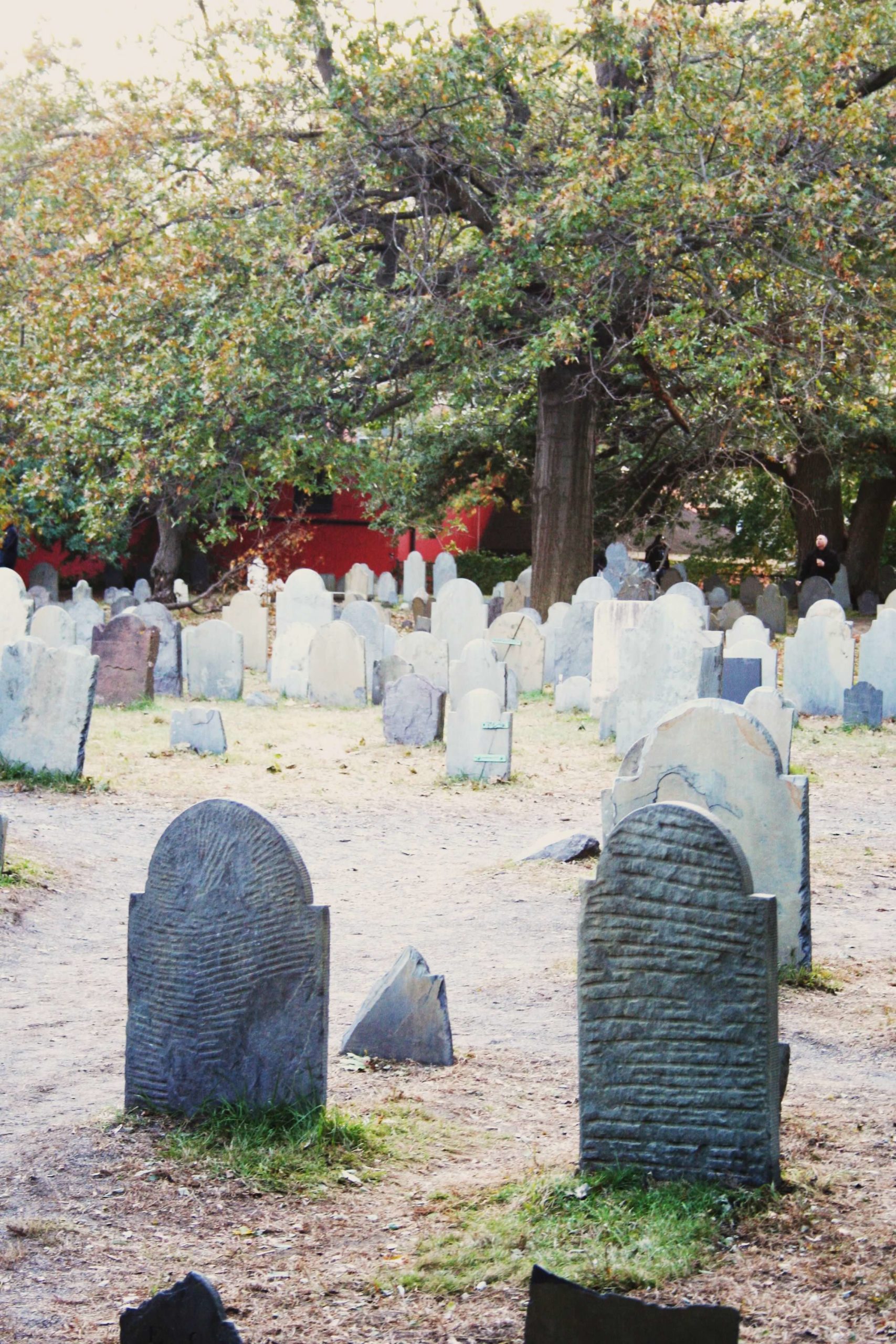
If you do get to visit Salem, visit the Salem cemetery and pieces of real history there.
We do this too often with historical tragedies and violence. We write it off as fantasy or some freak event, and we turn it into something enjoyable for ourselves. It’s okay to be fascinated. It’s okay for it to spark curiosities about related subjects, such as witchcraft and those who are actually practicing it. This can make it all feel closer to home, so people tend to avoid digging too deep into these events, but here’s the thing—if you’re going to talk about Salem, you need to actually talk about it and learn about it. Because in many aspects, witch trials are still happening—it’s just rebranded now.
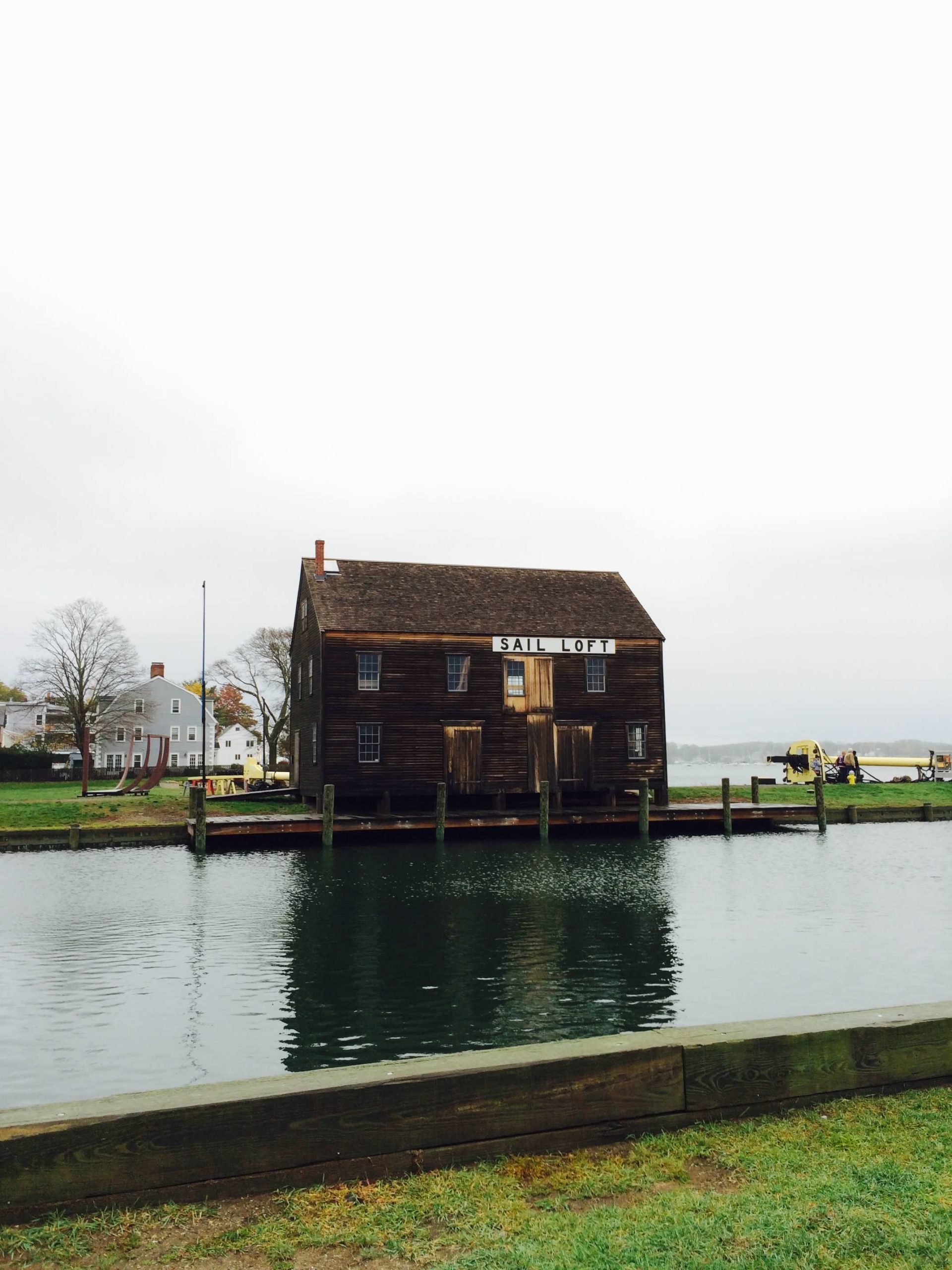
Salem was just another seaside town before the trials. It still has a rich maritime history.
Salem was a case of hysteria, hate, and over-zealousness of Christianity; we also live in a time when these qualities are being espoused by our leaders. We’re told we’re “nasty” if we support human rights and acknowledge ownership of our own bodies. People who are different, such as immigrants, LGBTQ+ people, POC, differently abled, plus-sized, and so on, get shamed, excluded, or worse. We are fed hysterical messages of fear by our commander in chief, and hate is shoved down our throats. Migrant children are separated from their parents and held in detention centers. The police often use unjustified force against Black women and men, and regularly walk away free. Conversion therapy is still legal in many states, because some people still believe that a different attraction is morally wrong. We vilify those who are different, and it’s dehumanizing. This dehumanization justifies violence and oppression.
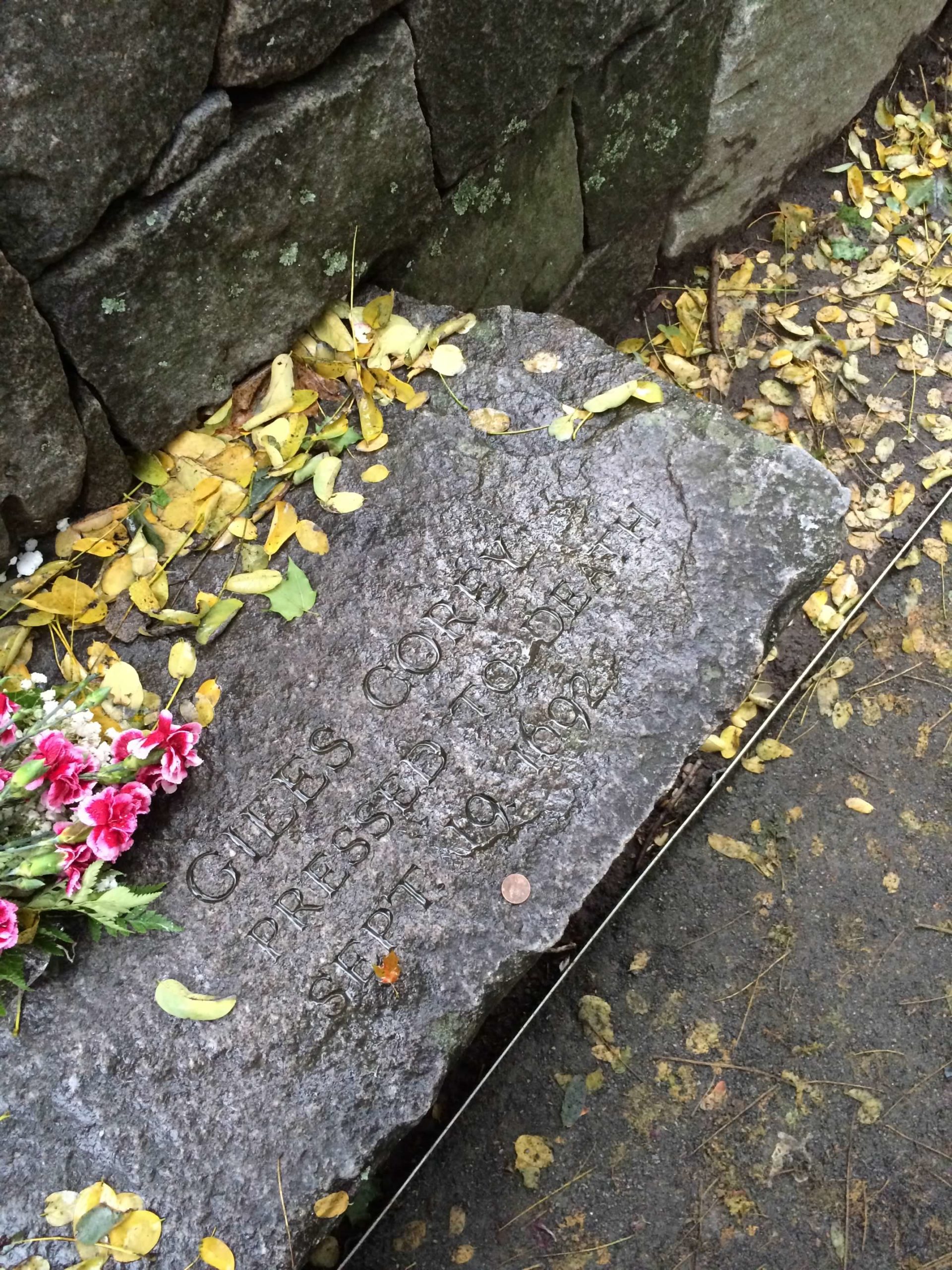
We as a society exhibit the same patterns as we did during the horrifying trials, and as an empowered and outspoken woman myself, I have no doubt that someone would have accused me if I lived back then. Strong women are called “angry feminists” and their status as women is brought into question. Women who speak up, like me, are invalidated. Violence, sexual harassment, pay disparity, and discrimination against women are unfortunately still rampant in 2020.
Group-think is not just present in cults or dystopian societies. It’s present in our news channels, our films, our social media outlets, and unfortunately our White House. This collective mentality of justified violence and oppression affects so many of us. It’s everywhere, and currently it’s what’s in power due to complicity and conformity. It’s unspeakable, the things we do to each other, but unlike the Salem Witch Trials, no one is putting an end to it. Not yet, anyways.
Also by Emily: The Icelandic Lifestyle Is A Blueprint For Happiness. How To Embrace It Wherever You Are
I Celebrate Pagan Holidays. Here’s Why You Should, Too
Get more like this—Sign up for our daily inspirational newsletter for exclusive content!
__
Photo: Nikki Degn




